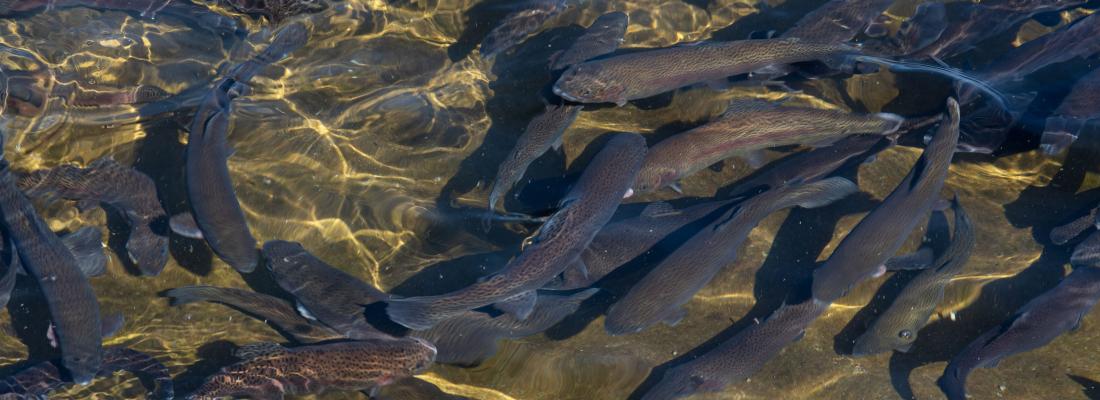Agroecology Reading time 2 min
Using genetics to support sustainable aquaculture: results from 20 years of breeding rainbow trout
Published on 12 October 2022

Between 1997 and 2019, the Aqualande group conducted a selective breeding programme on 10 generations of rainbow trout, based on the principles established by INRAE and the SYSAAF. They also maintained unselected rainbow trout from the same original population. To determine the genetic gains in performance, INRAE, Aqualande and the SYSAAF participated in the collaborative European research programme AquaImpact, during which they compared the growth, morphology, yield and fillet lipid content of the selected and unselected groups of fish. They also developed a sustainable feed based on INRAE research that was made without fish oil, fishmeal or soy to limit non-European imports. This feed was produced with ingredients from France and Europe, such as potato protein and microalgae. For 110 days, trout from both groups were given this feed, while others were fed a standard commercial feed containing fishmeal and fish oil.
The results show that trout from the selective breeding programme needed 17% to 20% less feed than the unselected trout to achieve the same growth. Moreover, their fillets had a higher lipid content, which improves their nutritional and taste profiles. Whether fed with the sustainable or the standard feed, trout from both groups grew at the same rates. Adding microalgae to the sustainable feed also enhanced the nutritional quality of the fillets, which contained just as many Omega-3 long-chain fatty acids[1] as fillets from trout given the standard feed containing fish oil.
This study shows that selective breeding and the development of sustainable feeds are two important levers for reducing the environmental impact of farmed fish production and accelerating the transition to a more sustainable aquaculture.
REfErence
Marc Vandeputte, Geneviève Corraze, Jérôme Doerflinger, Florian Enez, Frédéric Clota, Frédéric Terrier, Mathilde Horat, Laurence Larroquet, Vincent Petit, Pierrick Haffray, Sandrine Skiba-Cassy, Mathilde Dupont-Nivet. Realised genetic gains on growth, survival, feed conversion ratio and quality traits after ten generations of multi-trait selection in rainbow trout Oncorhynchus mykiss, fed a standard diet or a “future” fish-free and soy-free diet. Aquaculture Reports Volume 27, December 2022, 101363, DOI : https://doi.org/10.1016/j.aqrep.2022.101363
[1] Omega-3 long-chain fatty acids are a family of essential fatty acids found mainly in some vegetable oils, fish and shellfish.
